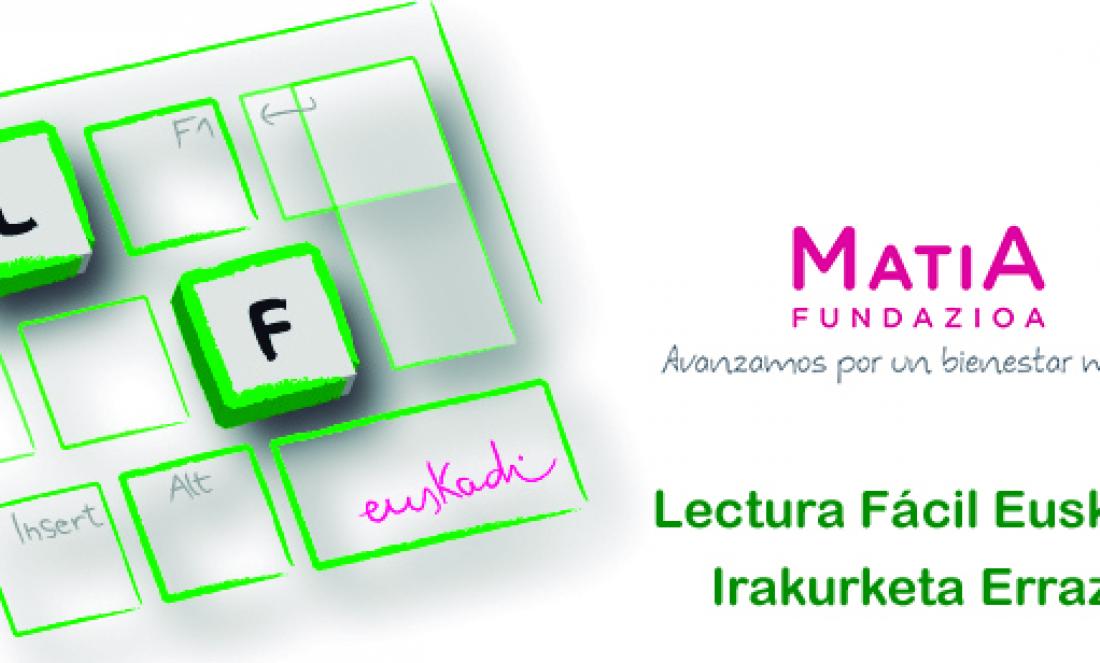
Easy Reading and Elderly People
Today in our blog we leave you with an interview with Blanca Mata, promoter of Easy Reading Euskadi - Irakurketa Erraza.
First, we will give you a brief overview of the Easy Reading (LF) system.
LF is books, documents, web pages, etc. that are prepared with special care, so that they can be read and understood by people with difficulties in doing so. The contents adapted to LF are a response to the needs of very diverse groups in this field.
A text by LF is characterised, among other things, by the fact that it describes events in chronological order, tells stories with a single line of argument, gives a logical continuity to the action and relates direct and simple actions, without excessive characters. Furthermore, it avoids difficult words and abstract terms, and uses dignified language.
On the other hand, the texts are printed in a large body of letters, generous margins and interline spacing are left and the length of the lines is limited, which are cut according to the natural rhythm of speech. In addition, images abound, which must harmonize with the text and facilitate understanding.
It is important to emphasize that this format follows contrasting criteria from European guidelines such as those of the IFLA (International Federation of Library Associations and Institutions) or those of Inclusion Europe (an initiative from the field of intellectual disability).
Now we leave you with the questions we posed to Blanca on the subject:
How can easy reading help the elderly?
Experiences with older people show the benefits of using these materials. If we take into account that this is a population spectrum that is progressively increasing and that there are problems that are very common within this group (senility disorders, dementia, Alzheimer's, loss of memory and capacity for concentration, loneliness, reduced social interaction, deficient educational level, physical difficulties, etc.), all of this may mean a loss of the habit or taste for reading. LF can help to recover this hobby as an everyday activity, which entails an open door to culture and new concerns, a form of learning, an improvement in the level of reading comprehension, stimulation of memory and recovery of memories, socialization and opening up to new areas of relationship, improved self-esteem, etc.
One of the characteristics of LF is its application in reading clubs. What are the benefits of sharing reading with more people?
Shared reading, aloud and in a group, is one of the most rewarding experiences in this sense. The experience of LF in Catalonia has meant that reading is taken to places where it is not usually read; this is the case of old people's homes, day centres, hospitals... LF clubs are one of the most common tools for the elderly to make reading a leisure, educational, knowledge or simple pleasure activity. Being able to read gives confidence and enables people to broaden their view of the world and take charge of their own lives. Reading enables people to share ideas, thoughts and experiences and to grow as human beings.
Right now we write from a blog and more and more content is being generated in the technological field. Does LF help to socialize and make more accessible content of this kind?
Older people face difficulties and obstacles in accessing conventional media (press, radio, TV) due to problems in understanding the message; the Internet and new technologies due to poor accessibility for them; and, due to their complexity, also certain administrative, banking, medical, legal or everyday information.
The benefits of LF applied to these cases would be translated into information and news in LF (as it already happens in the Nordic countries), the use of simple languages to get started in ICTs, the so-called "plain language" in public administrations as a citizen's right to receive clear and simple information, or the adaptation of information (medicines, instructions for the use of devices, signs...).
In summary, what is the greatest benefit of LF for the elderly?
LF enables the recovery of readers among the elderly; it even creates new ones. With it, they will be better people because being able to read and access information and knowledge will make them more informed, empowered, participatory, and proactive. In short: happier.
Thank you very much for everything, Blanca!
http://lecturafacileuskadi.net/

Add new comment